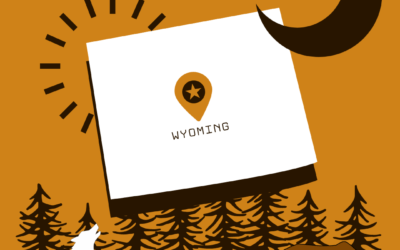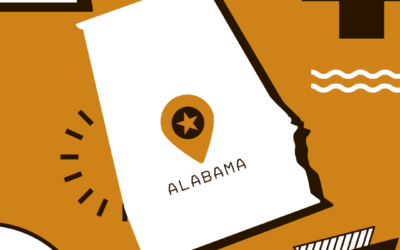Do you need to collect and remit sales tax in South Dakota?
In South Dakota, understanding your sales tax obligations is a vital part of running a successful business. Here, sales tax applies broadly, encompassing the gross receipts of all retail sales. This scope includes the sale, lease, or rental of personal property, any product transferred electronically, and the sale of services.
But it doesn’t end there. South Dakota also enforces a Municipal Gross Receipts Tax (MGRT)—an additional 1% tax rate extended to certain categories like alcoholic beverages, eating establishments, lodging accommodations, and admissions.
There’s another distinctive tax, the Contractor’s Excise, which imposes an extra 2% on all construction services or realty improvement projects. For a more in-depth exploration of the varied tax structures tacked onto the state’s sales tax rate, click here.
Despite South Dakota’s broad application of sales tax, there are some notable exemptions. These exemptions lighten or eliminate the tax burden for specific goods, services, or organizations, such as:
- Indian tribes
- Municipal or volunteer fire or ambulance departments
- Public schools
- Non-profit hospitals
- Manufactured and modular homes
- Agricultural equipment
- Telecommunication services
- Health services, drugs, and medical devices
Entities that qualify for exemptions must provide an exemption certificate at the time of sale.
Do you have sales tax nexus in South Dakota?
Sales tax nexus is essentially the connection or relationship between a seller and a state that necessitates the collection of sales tax. This is an important concept for every business to understand, especially with the increase in internet sales and ecommerce. In this guide, we focus on the two most important types of nexus: physical and economic.
Physical sales tax nexus in South Dakota
Physical sales tax nexus occurs when a business has a tangible presence in South Dakota. This can come in several forms, including:
- A storefront, warehouse, or office located within the state.
- Employees or sales representatives operating in South Dakota.
- Inventory stored within the state’s boundaries.
Businesses that have physical sales tax nexus need be licensed for sales tax collection regardless of volume of sales.
Economic sales tax nexus in South Dakota
Economic sales tax nexus requires sellers to collect and remit sales tax to a state if they exceed a level of economic activity. This type of nexus applies to businesses that have no physical presence in that state, such as remote or online retailers.
The concept of economic nexus gained momentum following a landmark Supreme Court verdict in the case of South Dakota v. Wayfair. The court sided with South Dakota’s laws, ruling that each state can set its own requirements for out-of-state sellers or remote retailers to collect and remit sales tax, whereas before only businesses with physical nexus were subject to sales tax collection. This decision was based on the growing need to make sales tax collection fair between traditional physical stores and online businesses. It also addressed the importance of capturing the revenue loss from increasing internet sales.
South Dakota’s economic nexus law requires remote sellers with more than $100,000 in gross South Dakota sales in the previous or current calendar year to be licensed and remit sales tax.
Are marketplace facilitators required to collect and remit sales tax in South Dakota?
In South Dakota, Marketplace Facilitators who meet the economic nexus threshold—over $100,000 in combined sales within the state in the current or previous calendar year—are obligated to collect and remit sales tax on behalf of their sellers. This translates to a simplified process for remote sellers who use a registered marketplace facilitator.
It is important for remote sellers who use platforms besides a marketplace facilitator—such as their own website or a different platform—to separately calculate those sales to determine if they have economic nexus.
For retailers residing in South Dakota, marketplace facilitator laws do not alter their sales tax responsibilities.
What platforms are marketplace facilitators?
What is a marketplace facilitator?
A marketplace facilitator, sometimes referred to as a Multivendor Marketplace Platform (MMP), is an online platform that allows customers to purchase goods or services from various vendors in one convenient location. These platforms can benefit businesses by increasing product visibility and attracting a larger customer base. Additionally, marketplace facilitators often have the legal responsibility to collect and remit sales tax on behalf of sellers, which can help ease the sales tax burden for businesses.
Filing South Dakota Sales Tax
If you have found that your business has nexus with South Dakota, here’s a detailed breakdown of the process for obtaining a South Dakota sales tax license and filing returns:
Registering for a Sales Tax License
You will need to register for a South Dakota Sales Tax License before you can collect sales tax from your customers. This can be done one of two ways:
- Online License Application: Complete the application for a South Dakota license online, either by creating an account or as a guest applicant.
- Streamlined Sales Tax Project: If your business needs to register for sales tax in multiple states, you can submit a single application to the Streamlined system. You can choose to apply to any or all the 24 member states.
Collecting Sales Tax
Once your South Dakota license has been received, you can start collecting sales tax. The tax rate depends on where your customer is located when they receive the product or service. For instance, goods purchased or picked up at your location are subject to sales tax at that location, while deliveries require sales tax charged for the delivery location. You should collect sales tax at the state rate and add any local taxes on top. The sales tax by location tool can held you find the correct rate.
Sales Tax Returns Filing
When South Dakota processes your application and grants you a sales tax license, you will be informed about your return filing frequency, (more on this later). Returns are due the month following the end of a period. The specific methods for filing are:
- Online Filing: South Dakota prefers online filing and payments as it is quicker, more accurate, and secure. South Dakota offers an allowance of 1.5% of the tax due (not to exceed $70) for timely returns filed and paid electronically. To access electronic filing, you will need to create an account on South Dakota EPath.
- Paper Return: For taxpayers who prefer the traditional route, South Dakota still offers paper filing. Payments for paper returns can be made via check or electronic payment and are due alongside the return.
A few key reminders:
- Sales tax returns must be filed even when no sales were made, or no tax is due.
- Keep a record of sales tax for at least three years in case of an audit.
- Sales tax should never be considered part of business income or used for other business-related expenses. Taxes collected must be remitted to the state.
When are sales tax returns due in South Dakota?
In South Dakota, most taxpayers are assigned to file their taxes either monthly or quarterly. If you’re filing monthly, you report on the taxes collected in the previous month. However, if you’re on a quarterly schedule, you cover the transactions from the previous three months. The table below lists these filing frequencies along with their respective due dates.
| Filing Frequency | Periods Covered | Due Dates |
| Monthly | Every month | Returns are due by the 20th of the following month. For example, January returns are due by February 20th, February returns are due by March 20th, and so on. |
| Quarterly | Quarter 1: January – March Quarter 2: April – June Quarter 3: July – September Quarter 4: October – December | Quarter 1: Due by April 20th Quarter 2: Due by July 20th Quarter 3: Due by October 20th Quarter 4: Due by January 20th |
If the 20th day of the month falls on a weekend or a holiday, the due date shifts to the next business day.




